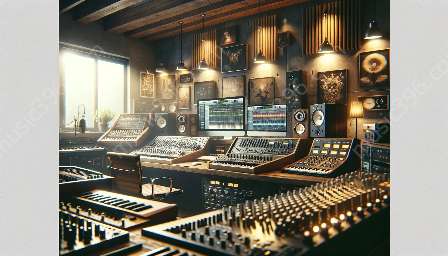Collaborative music recording projects often utilize a wide range of plugins to enhance the audio, but this practice comes with a unique set of potential challenges. In this discussion, we will explore the impact and compatibility of using plugins in music recording, understanding how they can influence the collaborative process and the final outcome of a recording project.
Understanding the Role of Plugins in Music Recording
Before delving into the challenges, let's understand the significance of plugins in music recording. Plugins are software components that can be added to digital audio workstations (DAWs) to extend their functionality. They can simulate analog equipment, provide digital signal processing (DSP), or offer a myriad of other audio effects and tools. Musicians and producers often rely on plugins to achieve specific sounds, enhance tracks, or even correct imperfections in recordings.
The Advantages of Using Plugins in Music Recording
It's essential to acknowledge that using plugins in music recording also brings various advantages. They can offer a cost-effective means of accessing high-quality audio processing tools, allowing musicians and producers to create professional-level recordings within a digital environment. Additionally, plugins provide endless creative possibilities, enabling artists to experiment with various effects and sounds that were previously only achievable through expensive hardware.
Compatibility in Collaborative Music Recording
When multiple collaborators are involved in a music recording project, ensuring compatibility across different systems and setups becomes crucial. Plugins may present a challenge in this aspect since not all participants may have access to the same plugins or versions of the plugins. This discrepancy can lead to compatibility issues or an inconsistent recording environment, impacting the collaborative workflow and potentially causing delays in the project's progress.
System Performance and Resource Demands
Another significant challenge in using plugins in collaborative music recording projects pertains to system performance and resource demands. As more plugins are introduced into the recording process, the strain on the hardware and software increases. This can lead to performance issues, such as audio latency, system crashes, and reduced overall stability. In a collaborative setting, where multiple tracks and plugins are being used simultaneously, ensuring a smooth and reliable recording environment becomes paramount.
Data Management and Version Control
Collaborative music recording projects involve multiple individuals working on different aspects of the recording. When plugins are extensively used, managing the data and ensuring version control becomes crucial. This is particularly true for plugins that are proprietary or require specific licensing. In scenarios where collaborators exchange project files across different DAWs or systems, ensuring that the plugins are correctly loaded and functioning as intended can be a significant challenge.
Quality and Sound Consistency
Plugins have the potential to influence the quality and sound consistency of a recording. Different versions or configurations of the same plugin can produce varying results, impacting the overall sonic cohesion of a project. Ensuring that all collaborators are using the same versions of plugins and have consistent settings becomes essential in maintaining a cohesive and unified sound throughout the recording.
Communication and Knowledge Exchange
The use of plugins in collaborative music recording projects also necessitates effective communication and knowledge exchange among collaborators. Given the diversity of plugins available, a lack of understanding or familiarity with specific plugins can hinder effective collaboration. Moreover, addressing issues related to plugin usage and troubleshooting can consume valuable time and effort, potentially slowing down the creative process.
Conclusion
While plugins offer a wealth of creative possibilities and enhance the capabilities of digital audio workstations, they also present unique challenges in collaborative music recording projects. Understanding the compatibility, system performance, data management, quality consistency, and communication aspects pertaining to plugin usage is crucial in effectively navigating and mitigating these challenges. By acknowledging these potential challenges and proactively addressing them, collaborators can optimize their use of plugins and foster a more efficient and cohesive music recording process.



































